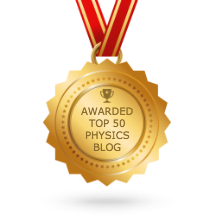 |
| On Writing Well, by William Zinsser. |
A list of writing resources was provided to all workshop participants (see below). It begins “For the most benefit in the least time with no cost, work through the Duke online Scientific Writing Resource, then read Part 1 (about 50 pages) of Zinsser’s book On Writing Well (available free online), and finally go through the online material for the Stanford Writing in the Sciences class.” If you don’t have enough time for even these three steps, then just read Zinsser, which is a delight.
Russ Hobbie and I try to write well in the 4th edition of Intermediate Physics for Medicine and Biology. You can decide if we succeed. Many readers of this blog are from outside the United States (I can tell from the “likes” on the book’s Facebook page). As I noted in the workshop, it is not fair that scientists from other countries must write science in a language other than their native tongue. Yet, most science is published in English, and scientists need to be able to write it well. So, my advice is to do whatever it takes to become a decent writer.
When I was in graduate school, my dissertation advisor John Wikswo gave me a copy of The Complete Plain Words, a wonderful book about writing originally published by Sir Ernest Gowers. Read it for free online. The version Wikswo loaned me was a later edition coauthored by Bruce Fraser. (You always should be concerned when a perfectly good book picks up a coauthor in later editions). This spring, Gowers’ great-granddaughter Rebecca Gowers is publishing a new edition of Plain Words. I can’t wait. Another oldie but goodie is Strunk and White’s The Elements of Style. The original, by William Strunk, is available online. (The second author of “Strunk and White” is E. B. White who wrote Charlotte’s Web; I vividly remember Mrs. Sheets reading Charlotte’s Web aloud to my third grade class at Northside Elementary School.) If you have time for only three words about writing, let them be Strunk’s admonition “omit needless words.”
I’ve come up with my own Three Laws of Writing Science, patterned after Isaac Asimov’s Three Laws of Robotics (regular readers of this blog know that Asimov influenced me greatly when I was in high school).
- First Law: What you write must be scientifically correct.
- Second Law: Write clearly, except when clarity would put you in conflict with the First Law.
- Third Law: Write concisely, except when conciseness would put you in conflict with the First or Second Laws.
Best Practices in Scientific Writing
Below is a list of resources about scientific writing. For the most benefit in the least time with no cost, work through the Duke online Scientific Writing Resource, then read Part 1 (about 50 pages) of Zinsser’s book On Writing Well (available free online), and finally go through the online material for the Stanford Writing in the Sciences class.
Books about writing:
• Gowers R, Gowers E. 2014. Plain Words
• Gray-Grant D. 2008. 8 ½ Steps to Writing Better, Faster
• Pinker, S. 2014. The Sense of Style
• Silvia PJ. 2007. How to Write a Lot
• Strunk W, White EB. 1979. The Elements of Style
• Zinsser W. 1976. On Writing Well (free online: archive.org/details/OnWritingWell)
American Scientist article “The Science of Scientific Writing”
Video of Steven Pinker discussing good writing
A free online course from Stanford about Writing in the Sciences
Kamat, Buriak, Schatz, Weiss. 2014. “Mastering the art of scientific publicaition: Twenty papers with 20/20 vision on publishing,” J. Phys. Chem. Lett., 5:3519–3521.
Kotz, Cals, Tugwell, Knottnerus. 2013. “Introducing a new series on effective writing and publishing of scientific papers,” J. Clinical Epidemiology, 66:359–360.
How to Get Published. A discussion with Mike Sevilla and myself, moderated by George Corser, about writing and publishing scientific papers, hosted the OU graduate student group GradConnection.
A free online webinar debating the use of the active or passive voice
Duke University’s online Scientific Writing Resource, open to all.
Nonnative English speakers (and the rest of us too) should see the website Scientific English as a Foreign Language.



No comments:
Post a Comment